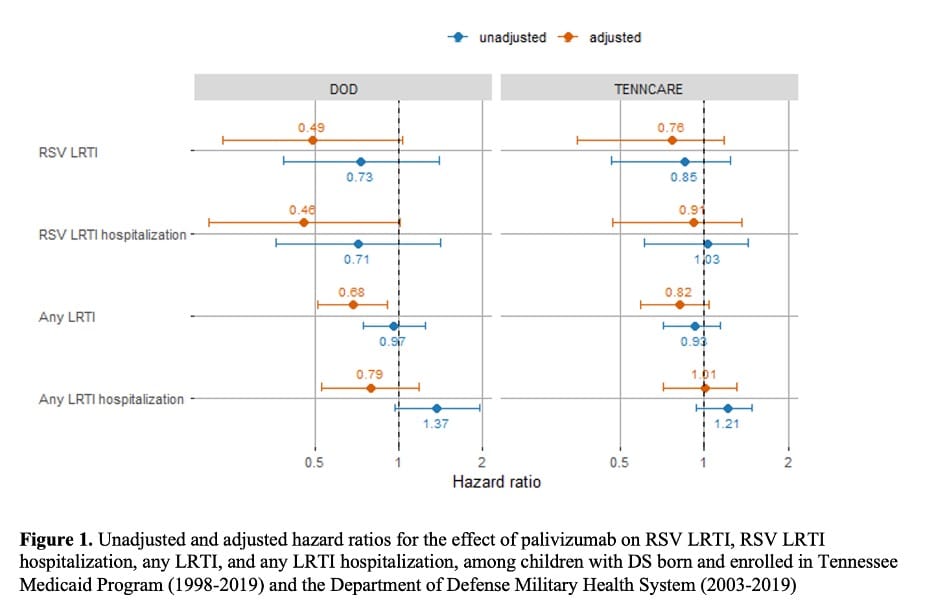Infectious Disease
Effectiveness of palivizumab on reducing RSV lower respiratory tract infection in children with Down syndrome Lin Ammar* Lin Ammar Corinne A. Riddell Tan Ding Laura Hopkins Rees L. Lee Tebeb Gebretsadik Sharon C. Enujioke Veronika Pav Angela C. Maxwell-Horn Wendy Funk Tina V. Hartert Pingsheng Wu
Background: We have demonstrated that children with Down syndrome (DS) are at an increased risk of respiratory syncytial virus (RSV) lower respiratory tract infection (LRTI) but are not a currently recommended group to receive palivizumab. The effectiveness of palivizumab in reducing RSV LRTI in children with DS is unknown.
Methods: We conducted a retrospective cohort study of children with DS born and enrolled in the Tennessee Medicaid Program (TennCare, 1998-2019) or the Department of Defense Military Health System (DoD, 2003-2019). Palivizumab administration and RSV LRTI healthcare encounters during children’s first two RSV seasons of life were identified using ICD codes. Children’s first two RSV seasons were categorized into palivizumab protected time (0-30 days after palivizumab administration) and unprotected time. Children were followed to an RSV LRTI encounter, disenrollment, death, end of RSV season, or end of study (2019), whichever came first. We conducted an extended Cox model, separately for TennCare and DoD, to determine the effect of palivizumab on RSV LRTI and RSV hospitalization unadjusted and adjusting for potential confounders. Sensitivity analyses using the outcomes of any LRTI and any LRTI hospitalization were performed.
Results: Of the 2,796 (TennCare: 1,026, DoD: 1,770) children with DS, 854 (31%) received at least one dose of palivizumab, and 354 (13%) had at least one RSV LRTI event during the first two RSV seasons of life. Palivizumab was associated with a decreased risk of RSV LRTI and RSV hospitalization in both groups, with greater magnitude of effect in the DoD population. Sensitivity analyses showed consistent findings as well (Figure 1).
Conclusion: In this observational study of children with DS, palivizumab receipt was associated with decreased risk of RSV LRTI. Given the high RSV-related morbidity, children with DS may benefit from identification as an at-risk population for whom early life RSV prevention is recommended.

